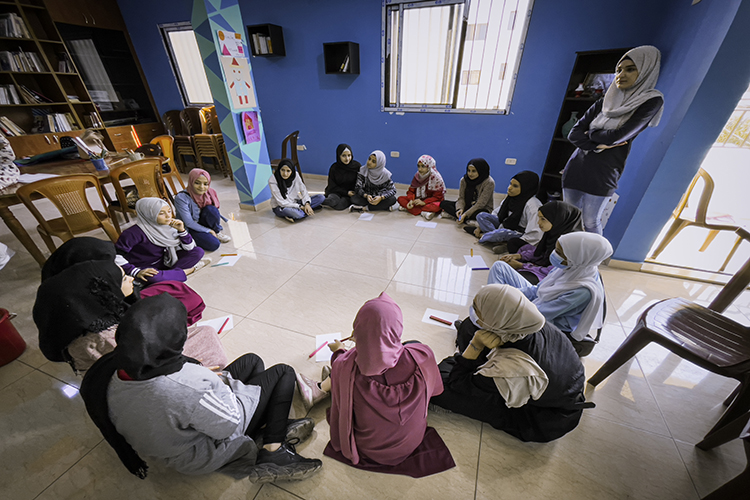31
May
It is not a first round in any case, as this latest aggression was preceded by attacks, or as they are said, military escalations, and this only indicates that the aggression is ongoing in various fields and for many reasons, but it is escalated from time to time according to the requirements and visions of the replacement colonial entity.
We must review a few facts here. First, the Gaza Strip, which is a coastal strip with an area of 365 square kilometers, is indirectly occupied and besieged. In addition, for example, to being forced to trade in the enemy’s currency, the enemy stands at all of its crossings, controlling movement, livelihood, and the economy, except for the crossing. Rafah, the connecting point between Palestinian Rafah and Egyptian Rafah, is supposed to be a sovereign point on which Egypt is based.
Secondly, the enemy had withdrawn from Gaza in 2005, driven by intense resistance. In his announcement of withdrawal, he revealed a unilateral disengagement decision, which is a political term that aims to separate between two states until each state achieves its geographical and political sovereignty. The Knesset will later cancel the decision in March from the year 2023.
Third, the siege on Gaza began in 2007 following the legislative elections in January 2006, as a collective punishment for the people of Gaza choosing their legislative representative, through a democratic election process. However, the enemy - the only democracy in the Middle East according to the West’s estimation - wanted a different fate for the people of Gaza.
Fourth, since its withdrawal from the Gaza Strip until before October 7, 2023, the Israeli enemy attacked Gaza six times, the longest of which was Operation Protective Edge in 2014, which lasted 51 days and killed 2,322 martyrs.
How can we today count more than 220 days of aggression against the Gaza Strip?
More than 35 thousand martyrs, more than 10 thousand missing, whether prisoner, martyr, or alive under the rubble, and tens of thousands of wounded who did not survive their wounds and will not survive another targeting.
Public opinion agreed upon the beginning of the aggression in October 2023 on a scenario different from the incident, similar to previous attacks at the very least. In our conversations, we used to say that this world will move naturally. We attribute this wish to several reasons, including:
The Israeli narrative has been proven false, and it has become clear that the enemy is using media platforms and tongues in a ridiculous and vulgar manner.
The issue is fundamentally related to a state of continuous struggle and a valid cause, which is historical Palestine, and that the Palestinian people are a people of a nation that will not watch them being slaughtered.
It is a struggle between an occupying colonizer and a people who have been under substitutionary colonialism for 76 years, and that international humanitarian law stipulates the right to self-defense for whom, and when it is due.
We are in the era of human rights and organizations striving for this cause, in addition to those who believe in rights and humanity, on another authoritarian side, countries and groups with popular, political and military weight condemn the right of the Palestinian struggle and the duty to support and advocate for it.
But “we” have been since the date of this aggression, and we have stood by every massacre that we believe will push this world to stand up for once against the enemy. What is also striking is that when we said, we do not mean the Palestinian people exclusively, and we did not only include Arab public opinion, but rather we are groups of varying race, gender, and affiliation. Culture believes that this genocide against the Gaza Strip must be stopped, but rather the Palestinian right from the river to the sea must be restored.
There is a real scene today of communities living on the streets of varying ages, educational levels, societal jobs, and positions, all of them from his place and his country asking for serious action to stop the genocide, and to stop supporting the criminal enemy, but something stands between the will of the communities and stopping the genocide, is the will of the governments that have concluded that there is no evidence of genocide in Gaza, and it tried its best to promote the story of the colonial enemy that it unleashed hell on Gaza only out of self-defense!
Rather, it seemed as if the ruling class around the world was waiting for the opportunity to “neutralize” the Gaza Strip, and amid speeches and statements filled with “I am a human being who opposes violence,” a convoy of advanced modern weapons crossed, from them to Israel, destroying the health and education sector, amputating people’s limbs, weighing down their hearts, and pursuing them from a building to a tent, and we turn our attention between two situations, either the Philadelphia land crossing between Gaza and Egypt, or a water pier that they used to build with the rubble of buildings destroyed in Gaza that may carry the bones of martyrs or their flesh!
In this accelerating time frame, none of the delegations from the developed world that rushed to the region seeking war or peace did not ask Gaza what it wants, and what fate it desires!
This is another scenario of war that was not expected by an analyst or expert, I think. Readings continued to exaggerate the events. Some claimed that it was an aggression that would not last, and others believed that a war would take place in the region, but Gaza remained in the middle, being attacked from all sides, tasting the horrors of the wars that was witnessed by the nations in one aggression, one sentence...
It is not a war we wish for, but rather how did we misjudge its age and brutality?
Read more

